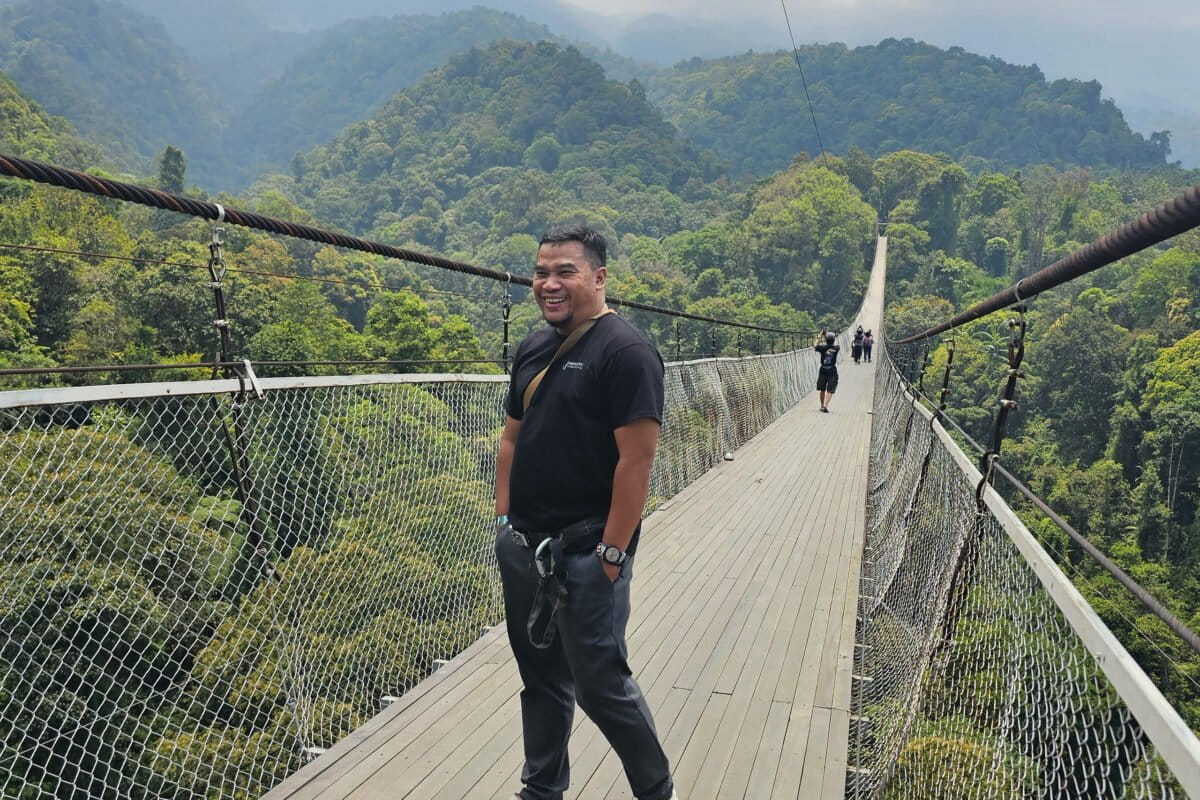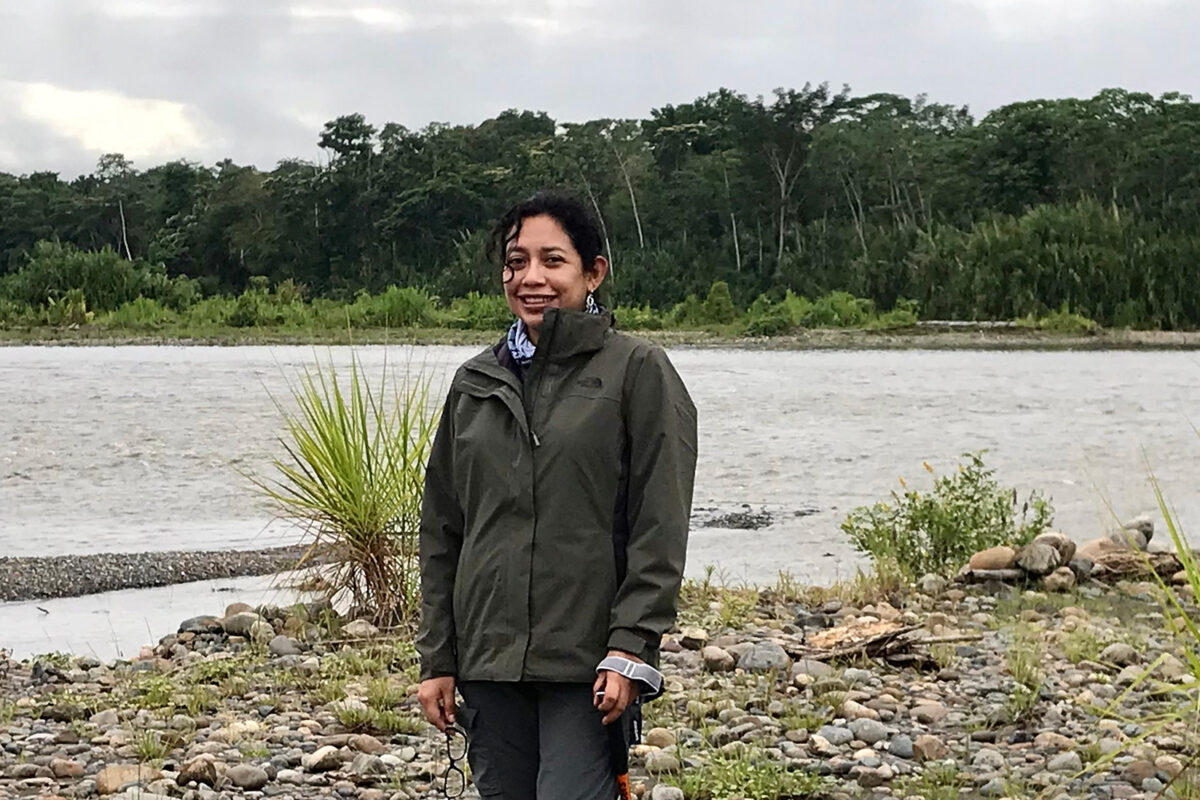
Tiger sharks (Galeocerdo cuvier) are considered keystone species in certain ecosystems. Although few in number, the fate of their ecosystem lies with them. If they eat too many, or too few, of a particular prey species, it can send a disruptive wave throughout the food chain. Species lower on the chain will proliferate or decline, with serious consequences for the ecosystem and the tiger sharks themselves.
According to a recent study published in the journal PLOS ONE, a small number of corporations resemble tiger sharks in the fishing industry. These corporations could potentially have a seismic effect on the entire fishing industry and hold the power to conserve or collapse fisheries worldwide.
Researchers led by Henrik Österblom, an environmental scientist with Stockholm University, found that just 13 transnational corporations control 11 to 16 percent of the global marine catch, representing 9 to 13 million tons of fish each year. Their dominance is even greater when it comes to the largest and most valuable fish stocks, of whose total annual catch they control between 19 and 40 percent.
According to the study, four of the 13 corporations control 40 percent of the world’s Alaska pollock (Gadus chalcogrammus) stock and three of them bring in nearly a quarter of the Peruvian anchovy (Engraulis ringens) take. When it comes to aquaculture species the story is similar: three companies control 38 percent of farmed Bluefin tuna (Thunnus sp.) and five hold 35 percent of farmed salmon (Salmo sp.).

So powerful have these corporations become that they are eclipsing the role of nations in the fishing industry, the study found. Combined, the 13 companies caught nearly ten million tons of wild fish in 2012 whereas only 23 countries worldwide caught over 1 million tons in the same year. “Several fishing companies are thus larger than most nations and at the same time take part in decision-making bodies for these resources,” the paper states.
The researchers call the 13 companies “keystone actors of the Anthropocene” because they hold the power to drastically change both marine ecosystems and the fishing industry itself.
The paper identifies the keystone actors as the US’s Trident Seafood; Japan’s Maruha Nichiro, Nippon Suisan Kaisha, and Kyokuyo; Thailand’s Thai Union Frozen Products and Charoen Pokphand Foods; South Korea’s Dongwon Group; Spain’s Pescanova; Hong Kong’s Pacific Andes International Holdings; and Norway’s Marine Harvest, Austevoll Seafood, EWOS, and Skretting.
Together they dominate seafood revenues and volumes, have global networks linked through subsidiaries, control important areas of seafood production, and are represented in global fishery and seafood management bodies.
“When combined, these aspects provide them with a disproportionate role in the global seafood production industry and a disproportionate ability to influence the dynamics of marine ecosystems worldwide,” write the authors.

Fish stocks around the world are under pressure as demand for protein-rich food increases; one report suggests that 85 percent of all global fisheries are either fully exploited, overexploited, depleted, or recovering. Österblom told mongabay.com that the scenario has played out in his home waters.
“Our home region, the Baltic Sea, is a well-documented example of how overfishing has substantially contributed to the decline of a keystone species — the cod, which in turn has had a number of cascading ecological effects,” he said.
A 2008 study showed that as cod (Gadius morhua) declined, populations of its main prey — sprat (Sprattus sprattus) — increased, as they gorged on zooplankton. Österblom said that a wide array of animals were negatively affected, including guillemot chicks: the chicks were leaner and weaker than normal, which researchers attributed to the overabundant sprat having lower than usual caloric content.
In this particular case, overfishing was thought to have combined with hydrologic factors to cause the cod collapse. But the danger of rampant overfishing is clear: depletion of a keystone species can send tremors throughout an ecosystem, with potentially devastating effects.
The study by Österblom’s team points out that at both national and international levels corporations wield significant power.

“[Keystone actors] are actively engaged in all kinds of global, national and regional sustainability initiatives, where they influence the level of standards set for both wild capture fisheries and aquaculture,” said Österblom.
One realm of particular influence for keystone actors is in Regional Fisheries Management Organisations (RFMOs), international agreements that involve a wide range of participants, including corporations, nation states, and advocacy groups. The power and importance of different RFMOs varies considerably as some bodies work only in an advisory role while others set catch limits and yield more influence over fishery policy.
“Since they are well represented in RFMOs — both as observers and as members of national delegations — they have informal ways to influence policy outcomes.” Österblom said.
He points to the Antarctic as an example of how concerted action by corporations and other participants in a similar kind of international fisheries management body achieved a striking conservation success by restraining Illegal Unreported and Unregulated (IUU) fishing that threatened to wipe out the Patagonian toothfish (Dissostichus eleginoides).
Extremely popular in the US where it is often marketed as Chilean seabass, the toothfish, nicknamed “white gold” in fisheries circles, yields enormous profits. During the 1990s pirate fishing ships descended in swarms upon the Southern Ocean, pushing toothfish populations to the brink of collapse.

After prolonged negotiations within the framework of the Commission for the Conservation of Antarctic Marine Living Resources (CCAMLR), member states, advocacy groups, and representatives from transnational corporations created a strategy to cripple IUU fishing. During the ensuing years illegal toothfish capture declined by over 90 percent.
“[Transnational corporations] played a key role in both the development of policies, monitoring of compliance and in criminal investigations — they hence had a really important role to play in reducing IUU fishing,” Österblom said.
But international cooperation has its limits. The organisation set ambitious targets to create a string of marine protected areas in the Southern Ocean by 2012 to secure fish stocks. But it managed to agree on only one, which it approved in 2009 off the South Orkney Islands. Here the partnership between corporations, states, and conservation groups, so successful at crippling IUU fishing, stumbled when attempting to set up protected areas that are off limits to all.
Even so, Österblom is optimistic that marine management, even if it is guided by keystone corporations, will lead fisheries toward greater sustainability rather than collapse. Their omnipresent nature suggests to Österblom that they will foresee the dangers and adapt to survive, for like the tiger shark they must take judiciously from their ecosystem or face their own demise.
“These are people that have been in the business for a really long time and they know their survival depends on healthy ecosystems,” he said. “They also have the global overview, which is telling them: There is no place left to go.”

Citations:
Casini, M. Lövgren, J. Hjelm, J. Cardinale, M. J. Molinero, C. Kornilovs, G. (2008) Multi-level trophic cascades in a heavily exploited open marine ecosystem. Proceedings of the Royal Society B. 275 1793-1801; DOI: 10.1098/rspb.2007.1752.
Food and Aquaculture Department. (2010) The State of World Fisheries and Aquaculture. UN Food and Agriculture Organization.
Österblom, H. Jouffray, J B. Folke, C. Crona, B. Troell, M. Merrie, A. Rockström, J. (2015) Transnational Corporations as ‘Keystone Actors’ in Marine Ecosystems. PLOS ONE. 10(5): e0127533. doi:10.1371/journal.pone.0127533.
Österblom, H. Bodin, Ö. Sumaila, U. R. Press, A. J. (2015) Reducing Illegal Fishing in the Southern Ocean: A Global Effort. The Solutions Journal. 72-79.














